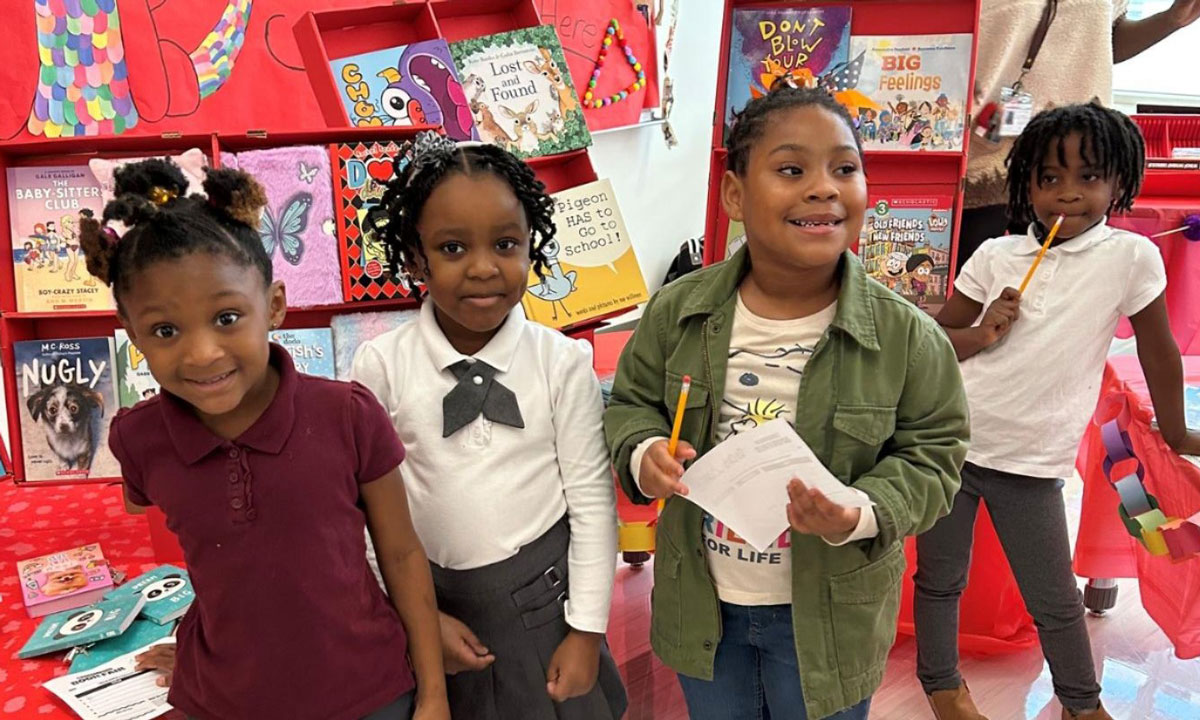Helpful tips about choosing the right Grade School for their child
The Important Role of Kindergarten in Kid Advancement: Truths and Insights for Moms and dads
Preschool works as an essential foundation for child advancement. It offers structured early discovering experiences that greatly influence cognitive, social, and emotional growth. Kids participate in activities that improve language skills and essential thinking while additionally finding out to navigate social interactions. Understanding the influence of this developmental stage is crucial for parents. What particular advantages does preschool offer, and exactly how can moms and dads best sustain their children during this essential time?
The Relevance of Very Early Knowing Experiences
Numerous might underestimate the importance of very early knowing experiences, they play an important role in forming a child's cognitive, social, and psychological growth. During these formative years, youngsters engage with their setting, getting language skills and fundamental expertise that set the phase for future understanding. Direct exposure to varied understanding tasks cultivates critical thinking, creative thinking, and analytical capacities.
Very early learning experiences assist youngsters create self-regulation and resilience, furnishing them to face challenges ahead. Involvement in organized discovering settings encourages inquisitiveness and expedition, crucial attributes for academic success. These experiences also present children to assumptions and routines, advertising a complacency and belonging.
Research study has shown that high quality very early education and learning can greatly influence long-term academic end results, minimizing the likelihood of learning difficulties. By emphasizing the importance of very early knowing, instructors and moms and dads can better support children within their full potential, inevitably adding to their overall health and future achievements.
Building Social Relationships and abilities
Structure social skills and forming friendships are crucial facets of a child's growth that frequently emerge from early understanding experiences. In preschool, youngsters involve in different tasks that promote interaction, communication, and synergy. They learn to share, take turns, and cooperate, which are foundational skills for developing connections.
Structured play and group projects urge children to navigate social characteristics, cultivating an understanding of different viewpoints and the relevance of compassion. As they communicate with peers, they practice conflict resolution and create negotiation abilities, essential for keeping friendships.
In addition, these early social interactions aid kids cultivate a feeling of belonging and community, which is crucial for their overall well-being. By creating links with classmates, children not only boost their social abilities but likewise gain self-confidence in their capacity to connect to others. Preschool offers as a crucial system for nurturing social advancement and friendship-building.
Establishing Emotional Intelligence
How do young kids start to recognize their own feelings and those of others? In the preschool setup, kids participate in various tasks that promote emotional intelligence. Via narration, play, and group conversations, they learn to determine and classify their feelings. Educators typically present concepts such as empathy by motivating children to assess exactly how others may really feel in various circumstances.
Role-playing workouts permit kids to exercise acknowledging emotional signs, fostering an understanding of social dynamics. Additionally, led discussions about conflict resolution aid them navigate their psychological actions and create coping strategies. By engaging with peers in organized atmospheres, children get insights into the emotional landscape of their schoolmates, which improves their capacity to create purposeful connections.
Inevitably, kindergarten acts as an important platform for nurturing psychological intelligence, equipping kids with important skills for future click here now social communications and emotional wellness.
Cultivating Self-reliance and Self-esteem
In the preschool atmosphere, youngsters not just enhance their emotional intelligence yet additionally begin to grow self-reliance and self-confidence. This crucial developing phase enables kids to make options, address Your Domain Name problems, and take duty for their activities. Involving in tasks that promote freedom, such as selecting their very own tasks or joining group tasks, helps kids discover to trust their judgment and capabilities.
As they navigate social communications, kids get self-confidence in expressing their feelings and ideas. Grade School. Support from instructors and peers promotes a feeling of belonging, even more improving self-esteem. Activities that need team effort and partnership likewise teach youngsters to value their payments, strengthening their sense of capability
Planning For Future Academic Success
As children take part in organized understanding experiences during kindergarten, they lay an essential foundation for future scholastic success. This early academic stage presents crucial abilities such as literacy and numeracy, boosting cognitive advancement and cultivating a love for discovering. Via interactive tasks, children find out to follow guidelines, work collaboratively, and fix issues, all of which are essential in greater academic setups.
Furthermore, preschool supports social-emotional abilities, making it possible for youngsters Web Site to manage their feelings, establish compassion, and build connections with peers. These capabilities add noticeably to a positive class setting and effective learning.
Study indicates that youngsters that thrive in preschool are most likely to perform well in later grades, demonstrating the long-term effect of very early education and learning. Subsequently, parents play a considerable role in supporting their kid's preschool experience by reinforcing discovering in your home and encouraging interest, thereby preparing them for a successful scholastic trip in advance.
Regularly Asked Questions

What Should I Search for in an Excellent Kindergarten Program?
An excellent kindergarten program must highlight play-based knowing, certified educators, a risk-free atmosphere, a balanced educational program, opportunities for social communication, and parental involvement. Examining these aspects ensures a nurturing space for youngsters's very early growth and growth.
Just How Can I Help My Youngster Shift to Kindergarten?

What Prevail Difficulties Kid Face in Preschool?
Usual challenges children deal with in preschool consist of splitting up stress and anxiety, problem adapting to organized regimens, social abilities development, and handling brand-new relationships. These problems can influence their overall adjustment and learning experiences throughout this vital adjustment duration.
Exactly How Can Moms And Dads Support Preschool Understanding in your home?
Moms and dads can sustain kindergarten discovering in your home by giving a structured regimen, participating in interactive analysis, encouraging innovative play, making use of instructional games, and fostering open interaction concerning school experiences to reinforce discovering and develop confidence.
What Is the Typical Daily Schedule in Preschool?
A regular daily schedule in kindergarten consists of morning circle time, organized learning activities, treat breaks, play, and story sessions, all developed to promote social abilities, imagination, and foundational scholastic ideas important for early growth.
In the kindergarten setting, youngsters involve in different tasks that promote psychological intelligence. As youngsters involve in structured knowing experiences during preschool, they lay an essential foundation for future academic success. Preschool nurtures social-emotional skills, making it possible for children to manage their feelings, create empathy, and construct connections with peers. Research indicates that children who flourish in kindergarten are more most likely to do well in later grades, showing the long-term impact of early education. Common obstacles children encounter in preschool consist of splitting up anxiety, trouble adjusting to organized routines, social skills advancement, and managing brand-new partnerships.